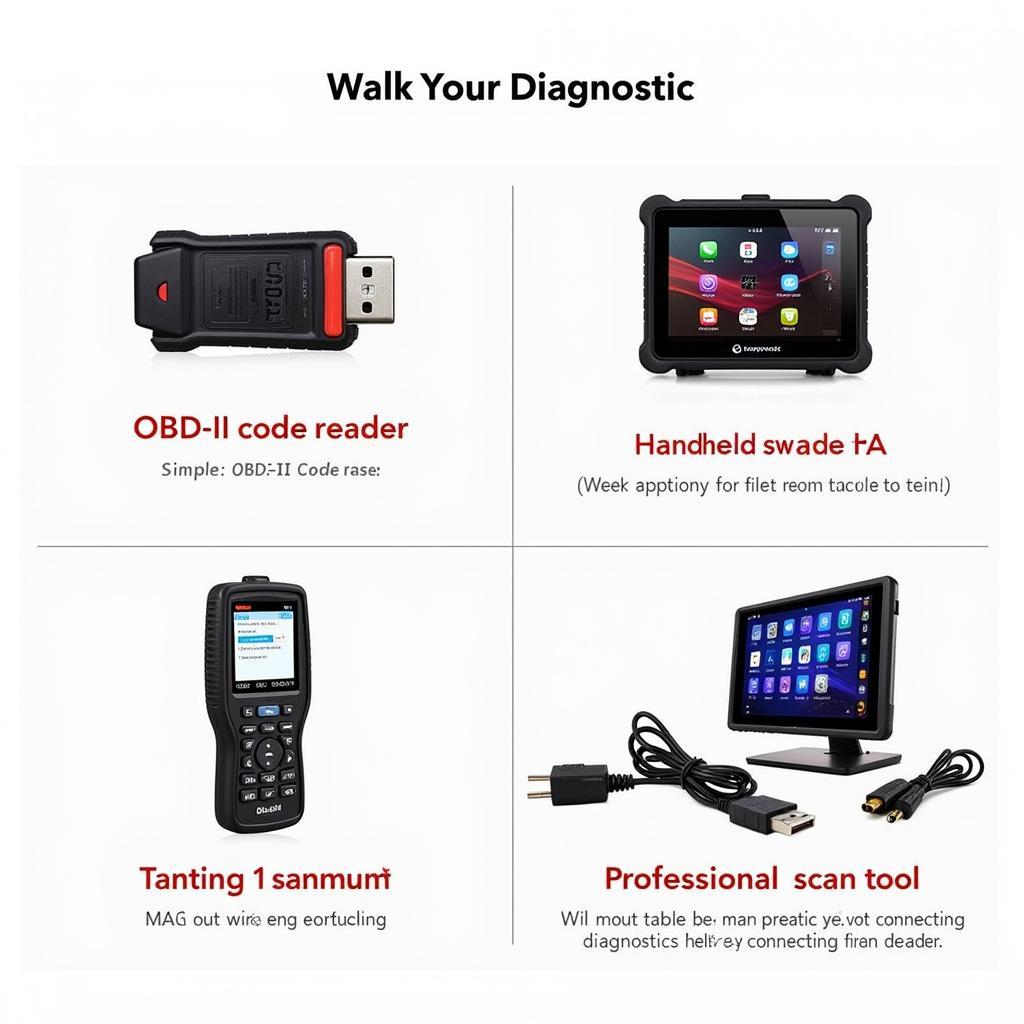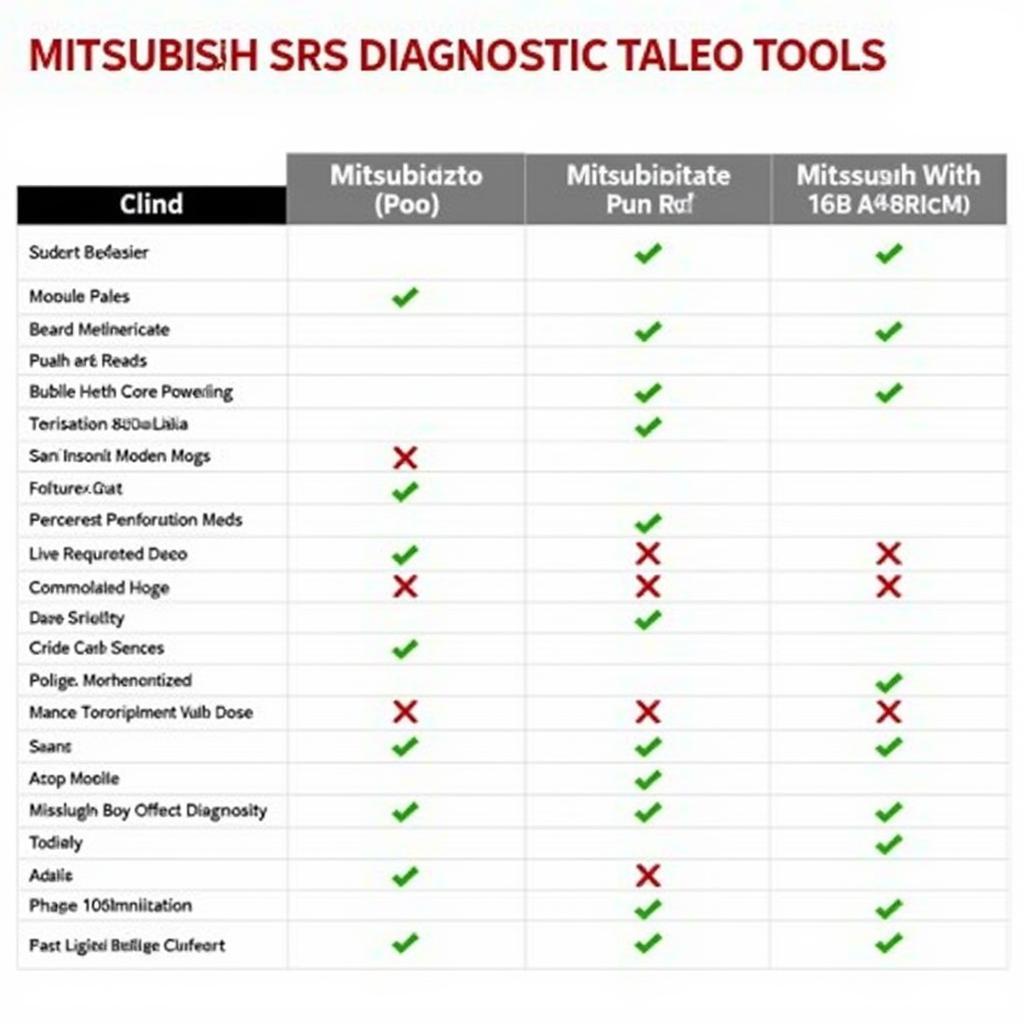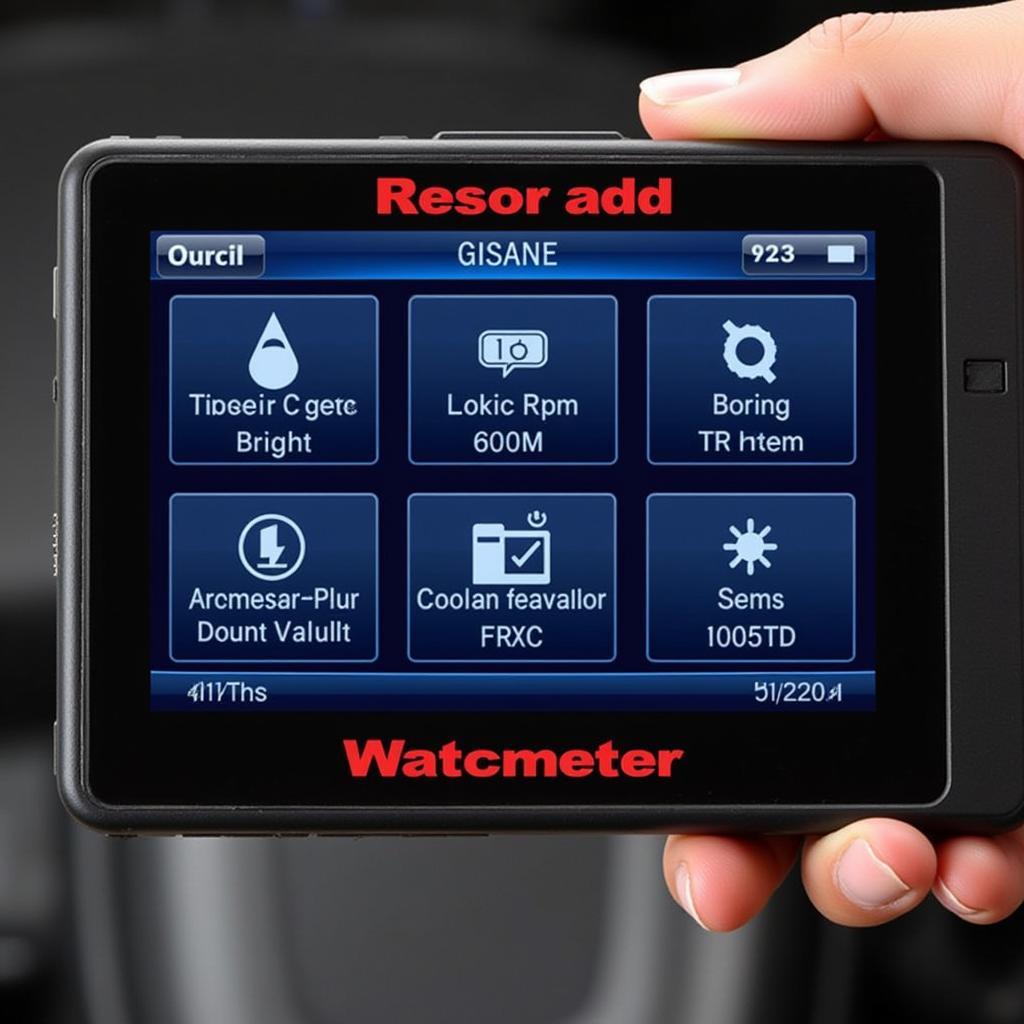The automotive world is evolving rapidly, and with it, the complexity of vehicle diagnostics. No longer are mechanics limited to rudimentary tools. Today, pinpointing the source of a pesky “check engine” light or a more serious mechanical issue demands the Best Diagnostic Analytic Tools. These advanced systems are revolutionizing how we understand and repair vehicles, offering a depth of insight previously unimaginable.
Whether you’re a seasoned mechanic or a car enthusiast looking to delve deeper into DIY repairs, understanding these tools is crucial. This guide will explore the world of automotive diagnostic tools, providing you with the knowledge to choose the right equipment for your needs.
Why Diagnostic Analytic Tools Are Essential
Modern vehicles are essentially rolling computer networks. From engine performance to safety features, intricate electronic systems control virtually every aspect of your car. When a problem arises, it’s no longer enough to simply pop the hood and tinker. You need a way to communicate with these systems, to understand the language of error codes and sensor readings. This is where diagnostic analytic tools come in. They bridge the gap between complex electronics and human understanding, allowing you to:
- Pinpoint Issues Quickly: Gone are the days of lengthy trial-and-error repairs. Diagnostic tools provide accurate, real-time data, enabling faster and more efficient diagnosis.
- Access Comprehensive Data: From engine RPM to transmission temperatures, these tools grant access to a wealth of data points, providing a holistic view of your vehicle’s health.
- Clear Error Codes: Easily read and interpret those cryptic “check engine” light codes, understanding the root cause and potential solutions.
- Perform Advanced Functions: Many tools offer capabilities beyond basic diagnostics, including component activation, key programming, and even software updates.
 Mechanic using a diagnostic tool in action
Mechanic using a diagnostic tool in action
Types of Diagnostic Analytic Tools
Navigating the world of diagnostic tools can feel overwhelming. From simple code readers to sophisticated professional-grade systems, there’s a wide range of options. Here’s a breakdown of the most common types:
1. OBD-II Code Readers
These are the entry-level tools, ideal for DIYers and budget-conscious individuals. They plug into your vehicle’s OBD-II port (typically found under the dashboard) and read basic diagnostic trouble codes (DTCs).
Pros:
- Affordable
- Easy to use
- Suitable for basic troubleshooting
Cons:
- Limited functionality
- May not read manufacturer-specific codes
2. Handheld Scan Tools
A step up from basic code readers, handheld scan tools offer more advanced features. They can read and clear DTCs, display live data streams, and even graph sensor readings. Many models also offer additional functionalities like ABS and airbag system diagnostics.
Pros:
- More versatile than code readers
- Portable and user-friendly
- Offer a good balance of features and affordability
Cons:
- May not support all vehicle makes and models
- Limited advanced functionalities compared to professional-grade systems
3. Professional-Grade Scan Tools
For professional mechanics and serious enthusiasts, these tools are the gold standard. They offer comprehensive diagnostic capabilities, including bi-directional control (the ability to command components on/off), ECU programming, key coding, and access to manufacturer-specific information.
Pros:
- Unmatched diagnostic power
- Extensive vehicle coverage
- Regular software updates with new features
Cons:
- Significant investment
- Requires technical expertise to fully utilize
 Various types of automotive diagnostic tools
Various types of automotive diagnostic tools
“Choosing the right diagnostic tool is about understanding your needs and skill level,” says automotive engineer and diagnostics expert, Sarah Chen. “A basic code reader might be sufficient for occasional DIY repairs, while a professional workshop requires the comprehensive capabilities of a high-end system.”
Key Features to Consider
When selecting a diagnostic analytic tool, consider these crucial features:
- Vehicle Coverage: Ensure the tool supports your vehicle’s make, model, and year. Some tools specialize in specific brands, while others offer broader coverage.
- Software Updates: Regular updates are essential to keep pace with evolving vehicle technology. Check for update frequency and costs.
- User Interface: A user-friendly interface with intuitive menus and clear data presentation is crucial for efficient diagnosis.
- Data Logging and Reporting: The ability to log data and generate reports is valuable for tracking issues over time or sharing information with clients.
- Additional Features: Depending on your needs, consider features like bi-directional control, key programming, battery testing, and scope analysis.
Making the Right Choice: Your Diagnostic Tool Checklist
With so many options available, choosing the right diagnostic tool can feel daunting. Use this checklist as a guide:
- Define Your Needs: Are you a DIYer, a professional mechanic, or somewhere in between?
- Set a Budget: Diagnostic tools range from affordable to expensive. Determine your budget early on.
- Research and Compare: Explore different brands, models, and features. Read reviews from other users.
- Consider Future Needs: Anticipate your future needs. A tool with room to grow might be a wise investment.
- Seek Expert Advice: If you’re unsure, don’t hesitate to seek advice from experienced mechanics or automotive professionals.
The right diagnostic analytic tool is an invaluable asset for any car owner or mechanic. It empowers you to understand, diagnose, and repair your vehicle effectively, saving you time, money, and potential headaches down the road.
Need help finding the perfect diagnostic tool? Contact ScanToolUS at +1 (641) 206-8880 or visit our office at 1615 S Laramie Ave, Cicero, IL 60804, USA. Our team of experts can help you choose the right equipment for your needs.


